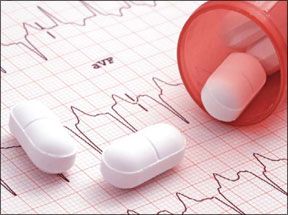Data from the 1999-2004 National Health and Nutrition Examination Survey (NHANES) indicates that 33.5 million older Americans take statins, and its thought another 11 million also could benefit from taking them. The drugs are proven to reduce the incidence of heart attacks, strokes and death in patients with established coronary artery disease (CAD). Recent research, published in the Feb. 9 issue of Archives of Internal Medicine, suggests they also may be useful in delaying or preventing the development of CAD in patients who have not yet been diagnosed. Statins-which include atorvastatin (Lipitor), simvastatin (Zocor), and rosuvastatin (Crestor)-lower LDL ("bad") cholesterol by blocking a specific liver enzyme (HMG Co-A reductase) which controls cholesterol production by the liver. Cholesterol, a waxy, fat-like substance thats vital for cell function, is harmful if elevated because high levels can result in a condition called atherosclerosis, where fatty deposits called plaque narrow and even block the arteries. Atherosclerosis impedes the flow of blood to the heart, which may result in angina (chest pain). If plaque ruptures, blood clots can form, raising the risk of heart attack and stroke. As well as helping prevent a buildup of plaque by lowering cholesterol levels, statins also reduce inflammation (an important factor in cardiovascular disease) and may help the body to reabsorb cholesterol that has already been deposited in plaque.
To continue reading this article or issue you must be a paid subscriber.
Sign in






